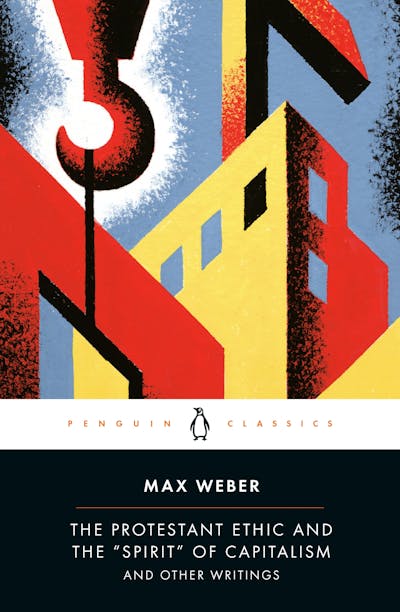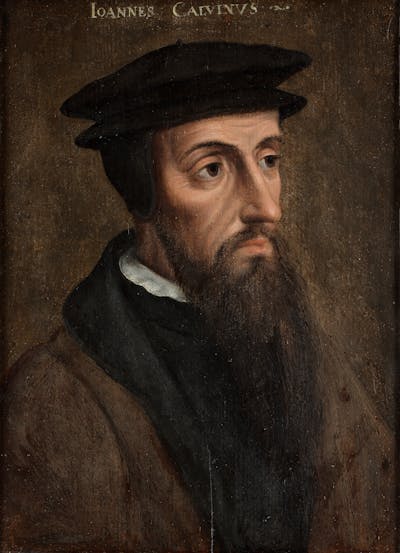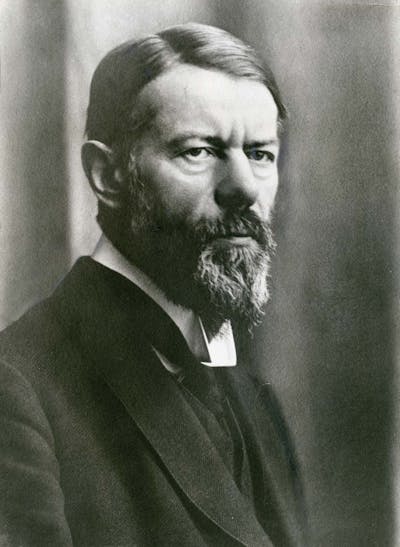
Not long ago, a relative of mine told me he had been working so hard in the yard that he’d “literally thrown up”. He didn’t offer this as a health update, or to warn me about overexertion. It was, oddly enough, a boast.
We are familiar with this type of thing. Elon Musk once claimed “nobody ever changed the world on 40 hours a week”, apparently unaware that people from Archimedes to Nobel laureate Sir Alexander Fleming managed just fine on a normal schedule
If Musk turned overwork into public theatre (he even said he slept on Tesla’s factory floor), the biographies of Microsoft founder Bill Gates had already given us a prototype. Gates would stretch out under his terminal like a secular Buddha, waiting not for enlightenment, but for executable code.
Whether you find these stories inspiring or slightly deranged, the point is the same: today, overwork is one of the few politically neutral ways to show virtue. We don’t just work to live; we work to prove we deserve to.
These values aren’t written in the stars, or in our DNA, or in the logic of history. So why do they carry such moral weight? Why is work treated, strangely enough, as if it were next to godliness?

One of the sharper answers came from German sociologist Max Weber. His book The Protestant Ethic and the Spirit of Capitalism (1905) has become a classic – though we need to be careful about what “classic” means here. Like the Bible or Stephen Hawking’s A Brief History of Time, The Protestant Ethic is widely bought, regularly invoked, and rarely read.
Weber’s book is not quite a history of economics, nor is it what we would label “religious history”. It borrows from both, but is stranger than either. The Protestant Ethic is a study of how religious ideas, especially Calvinism, helped shape the mindset upon which modern capitalism thrives.
Weber argued that a certain kind of Protestantism didn’t just shift what people believed; it changed who they became. Anxious about their prospects for salvation, Protestants looked for signs of divine favour in worldly success. That anxious looking, Weber thought, helped to create – and then helped to reinforce – the disciplined, work-and-future-oriented modern subject that capitalism depends on.
The book is neither a lament nor a celebration, even if, by the end of the book, a tone of despondency creeps into the text. It was one of Weber’s key ideas, and not just in this book, that modernity had lost previous ages’ sense of spiritual meaning, which left behind a mere husk – the grim compulsion to work.
The spirit was gone, Weber thought, even if the ethic lived on, and even if the modern world risked becoming what he called an “iron cage”.
What did Weber actually argue?
Weber kept circling around the same deceptively simple question: why did modern capitalism take root in the West rather than somewhere else?
There are different ways of answering such questions. These days, thinkers like historian Jared Diamond might try to explain such things in terms of geography or the location of resources. Marxists might explain the same thing in terms of class struggle and shifts in the “modes of production”.
Weber would not have denied that such factors played a role, but he was interested in the role of culture, especially those moral and psychological habits that grew out of the Reformation. He argued that they didn’t just fit capitalism in some abstract sense; they helped form exactly the kind of person capitalism came to rely on.
First, it helps to understand what Weber meant by Geist des Kapitalismus – “the spirit of capitalism”. But it is also useful to know what he didn’t mean. He wasn’t referring to the emergence of markets or profit-seeking, as such; those had been around for centuries.
What was new, Weber thought, was the moral stance: that working hard, living frugally and accumulating wealth weren’t just practical skills for succeeding, but inherently virtuous forms of behaviour. Profit, for some, was more than a merely desirable personal outcome; it was a duty.
Weber traced this “Geist” to a particular strain of Protestantism, originating in the work of theologian John Calvin (1509-1564).

Calvinists believed in predestination. This is the idea that God has already decided who is saved and who isn’t, long before any merely human act could modify this outcome.
Some historians – and Calvin himself – thought that the purpose of the doctrine was to underline human helplessness. In practice, it bred deep anxiety. For if salvation could not be earned here on earth, how could anyone be sure of their fate?
The result was a kind of compensatory behaviour. Believers began looking for signs of God’s favour. Success in one’s calling – or “Beruf”, a word that means both “job” and “vocation” – became such a sign. Working hard, avoiding luxury, reinvesting profits: these weren’t just sound habits. They might be clues that one was among the elect.
Weber called this “inner-worldly asceticism”: religious energy channelled not into monasteries or seclusion, but into ordinary life. You did not retreat from the world to find God. You showed your worth through worldly discipline.
Over time, these behaviours detached from their religious roots. You didn’t need to believe in predestination to feel the drive to work endlessly, or to prove your value through success. The idea of a “calling” lingered on, but hollowed out. Eventually, it looked less like a vocation than an obligation.
So Weber’s point was not that Protestants invented capitalism. It was that Protestant ideas helped shape a certain kind of personality – disciplined, anxious, goal-oriented – that meshed perfectly with the new economic system.
He also thought the world had been stripped of transcendence. But, as theologian William Cavanaugh has argued, modern life is not disenchanted, so much as re-enchanted under new forms.
Capitalism didn’t erase worship; it redirected it. Our liturgies now involve tap-and-go offerings, algorithmic fate, and daily rituals of market devotion. The moral weight Weber saw in the Protestant calling has not vanished. It has been reborn: now it answers to dopamine hits and brand loyalty. We no longer justify our work in relation to God’s glory, but we still work as if something eternal depends on it.
The surprising bit
At first, The Protestant Ethic reads like an origin story for capitalism. Keep going, and it starts to feel more like a ghost story. Weber certainly wasn’t celebrating what he described. He was, instead, trying to document the moment when a spiritual or theological project hardened into something far more mechanical, compulsive and inescapable.
In this purview, a vocational calling contracts into a mere job and sacred duty. It becomes, over time, indistinguishable from base economic necessity.

One of the most quoted lines in the book comes near the end, where Weber declares that modern capitalism leaves us “with a casing as hard as steel” (“ein stahlhartes Gehäuse”). This was translated dramatically (and decisively) into English by Talcott Parson as the “iron cage”.
Weber’s point was that the moral energy that once drove the Protestant ethic has drained away. What remains are mere behavioural patterns, which have become reflexes. People still work obsessively; they still chase success as if it had ultimate meaning. The difference is that now they’re unsure why.
Australian philosopher Michael Symonds has argued that this tragic logic, where the terror of predestination drives believers into a compulsive ethic of work, produces a world where meaning itself becomes hard to grasp. The result is not just what sociologists – also following Weber – call “disenchantment”, but a deeper void. It is a world where suffering no longer automatically invites compassion and where love begins to look like inefficiency.
Labour becomes the only reliable reassurance available to us. “Waste of time,” Weber wrote, “is the first and in principle the deadliest of sins.” In this world, leisure is guilty until proven innocent.
This is one of Weber’s most unsettling points: a system designed to prove spiritual worth ends up building a world whose very operating logic seems to deny that any such worth exists. In chasing this particular kind of meaning, we have built structures that erode our ability to believe that anything means much at all. Modern capitalism is both a consequence of Protestantism and its betrayal.
Why it still matters
Clearly, one doesn’t need to know about Calvinism to inhabit the world Weber described. And yet, if anything, the patterns he traced have only deepened. It’s true of much of the way culture works more generally – the religious fingerprints are still there, though we rarely notice them.
It only takes a moment to realise that the word “secular” is itself derived from Christian theology and tradition. In the end, Weber suggested, capitalism didn’t kill religion; it merely embalmed it. It kept the ethic’s shell, while draining its transcendence.
Take the fixation with self-optimisation. The language of “vocation” is everywhere, but it has been flattened into a lifestyle brand. Work isn’t just work anymore; it is supposed to be passion, purpose, identity. You’re not just employed, you’re “doing what you love”. This idea is tempting, but it quickly turns into a trap, because if work is meaning, then failure or exhaustion start to look like moral flaws.
That logic – moralising productivity, pathologising rest – feels deeply Protestant, even if no one would put it that way. You hear it in career coaching, education reform, wellness talk. Everyone is encouraged to act like a miniature firm: building your brand, investing in “human capital”, squeezing returns from every hour.
But the anxiety has shifted. For early Protestants, work was a way of reassuring yourself that you might be saved. For many today, work is a way of proving you’re not disposable. The panic hasn’t gone, but the stakes have changed. It isn’t quite heaven or hell anymore. It is something smaller, if no less pressing: relevance.
And the ethic keeps working on us. We feel the pull to be useful, to produce, to stay busy – even when the rewards are uncertain, or vanish altogether. You can see it in people working long hours in precarious jobs, or feeling guilty when they take a break, or struggling to explain what they’re “doing” if it isn’t obviously productive.
That, roughly speaking, was Weber’s warning. He wasn’t just telling a story about religion and economics. He was tracing how ideas shape habits, and how habits, once institutionalised, keep working long after the ideas themselves fade.
Deposit on a cage
So even though The Protestant Ethic looks like an old book about theology and early capitalism, it still slices into modern life with surprising force. It explains why Elon Musk’s factory-floor sleepovers are admired instead of pitied, why “burnout” is treated like a rite of passage.
And it reminds us that systems don’t need belief to keep running. At base, they only need compliance.
Weber’s point wasn’t just that, once upon a time, religion fatefully shaped economics. It was that a certain kind of theology, and the specifically religious anxiety to which it gave rise, engendered a system that outlived its theology and hardened into something else entirely.
The religious energy that once drove productive labour aimed at glorifying God was stripped of transcendence. Where people once worked to glimpse signs of salvation, we now work to prove we still matter at all. The world has been disenchanted, but the demands that preceded the disenchantment remain.
There are evident paradoxes here. The ethic meant to reveal God’s grace ends up, in Weber’s account, eroding the very idea that the world has meaning at all. Even if it no longer speaks, the world still functions.
Weber’s tone at the end is not prescriptive or revolutionary, but mildly tragic. He offers no remedy and no call to arms. He asks only that we come to see how we got to where we are – how a certain religious tradition helped us build a machine that now runs on our labour without our belief.
In describing how capitalism arose, Weber was also probing how we became the kind of people ready and willing to live inside it. Although his tone is tragic, one thing remains clear: the world he describes is not determined by the stars or “human nature”. And although he is often set against reformers like Marx, Marxists can use him too, for Weber was willing to ask how it is that we came to see a cage not only as tolerable, but as something we’d put a deposit on.
This article is republished from The Conversation, a nonprofit, independent news organization bringing you facts and trustworthy analysis to help you make sense of our complex world. It was written by: Chris Fleming, Western Sydney University
Read more:
- How Hershey’s chocolate survived an attack from Mars − and adopted a business strategy alien to its founder
- An Indigenous approach shows how changing the clocks for daylight saving time runs counter to human nature – and nature itself
- Building a stable ‘abode of thought’: Kant’s rules for virtuous thinking
Before his retirement, I worked alongside Michael Symonds at Western Sydney University. I also know William Cavanaugh. I'm happy to erase those names or parts of the article if citing them is seen as ... I'm not even quite sure ... nepotistic?


 The Conversation
The Conversation
 Raw Story
Raw Story Deseret News
Deseret News Catholic News Agency
Catholic News Agency WBKO
WBKO CTV News
CTV News  Cleveland Jewish News
Cleveland Jewish News The Fayetteville Observer Sports
The Fayetteville Observer Sports The Fashion Spot
The Fashion Spot